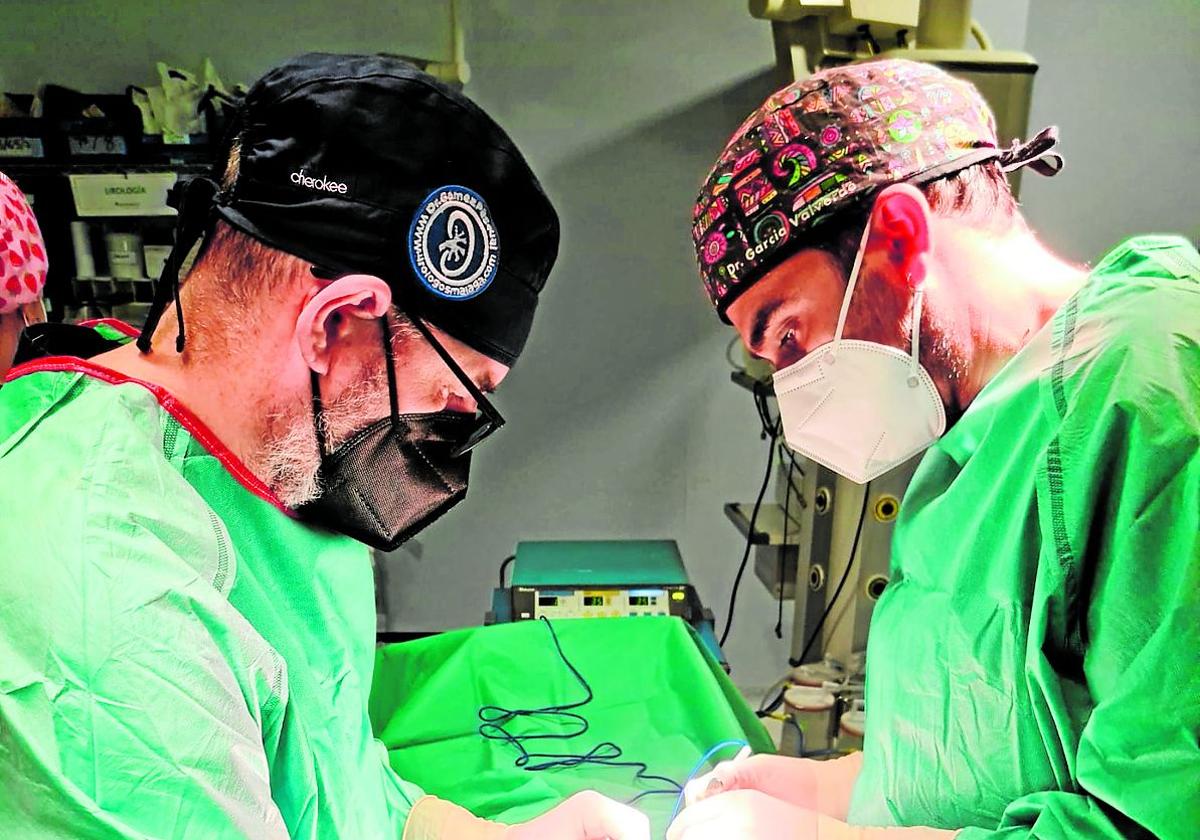

Sections
Highlight

Iván Gelibter
Malaga
Friday, 14 June 2024, 12:57
One in four men will suffer from prostate cancer, but in most cases there will be no symptoms in the early stages, which will make treatment more difficult later on. These are two of the main conclusions that can be drawn about this type of cancer, the third most deadly according to all studies.
According to the Asociación Española Contra el Cáncer, the incidence of prostate cancer in 2023 in the province of Malaga was 139 cases per 100,000 inhabitants, which represents a slight rise compared to 2022, but without reaching the peak of 142 cases, which occurred in 2020. Even so, the evolution of the last fifteen years -as in the rest of the cancers- is upward; a reality intimately linked to the ageing of the population.
All experts clearly define that the best way to combat this cancer is prevention, since, unlike other tumours, prostate cancer does not usually present symptoms in the early stages. Among exclusively male cancers, this is the most common cancer in men and the third most deadly. "One in four men will suffer from prostate cancer at some time in his life. That is why it is vital to emphasise the importance of prevention and the need for annual check-ups from the age of 50 onwards, check-ups that should be carried out from the age of 40-45 if you have a close relative who has suffered from prostate cancer or if you have the BRCA2 positive gene, which is related to an increased risk of presenting certain cancers, such as prostate cancer," warns Dr. José Ángel Gómez Pascual, head of Urology at Hospital Quirónsalud Málaga.
Experts also warn that there are a variety of external and environmental factors that have been suggested to be associated with the risk of developing prostate cancer, or that are important in the progression of prostate cancer, as is the case with many other types of cancer. For example, the presence of metabolic syndrome or arterial hypertension have been associated with increased risk. Likewise, hypercholesterolemia and obesity are risk factors in this regard. Prostate cancer may have a hereditary factor, which is why it is so important if there is a history in the direct family to start check-ups from the age of 45.
As Gómez Pascual explains, a routine urological check-up is completed with a clinical consultation with PSA (prostate-specific antigen) analysis, a prostate examination, uroflowmetry and a prostate ultrasound or a multiparametric magnetic resonance of the prostate, which shows more precisely if there is any type of suspected lesion and which replaces the random biopsy. "Prostate cancer is usually diagnosed in early stages thanks to a PSA test. It is not necessary to wait for symptoms, since this type of tumour usually gives clinical symptoms in more advanced stages, with symptoms of the lower urinary tract", such as a decrease in the flow when urinating, intermittent urination, dribbling when urination is ending, urgency or an imperious urge to go to the bathroom, he describes.
In the specific case of the Urology team at Quirónsalud Malaga, prostate biopsy by fusion imaging using magnetic resonance and transrectal ultrasound is used, which allows us to biopsy the exact tissue in which cancerous cells are presumed to be present.
"With multiparametric prostate MRI we can assess both the need for a prostate biopsy and, in the case of having to perform it, the area in which to target the sampling; which shows that fusion biopsy is the key diagnostic tool of recent times, allowing us to adjust the level of detection of prostate cancer beyond 95%, without going blindly, without false negatives.... Of all the diagnostic tools available, fusion biopsy is the one that yields the most definitive information, so much so that it makes it possible to diagnose 30% more aggressive cancers that would have gone undetected by classic biopsy," explains the physician.
The success of the treatment, adds Gómez Pascual, is based on making the earliest possible diagnosis of the primary tumour and the most accurate diagnosis of the clinical stage of the disease, since both will be decisive in the choice of the therapeutic regimen.
Publicidad
Publicidad
Publicidad
Publicidad
Esta funcionalidad es exclusiva para suscriptores.
Reporta un error en esta noticia
Comentar es una ventaja exclusiva para registrados
¿Ya eres registrado?
Inicia sesiónNecesitas ser suscriptor para poder votar.